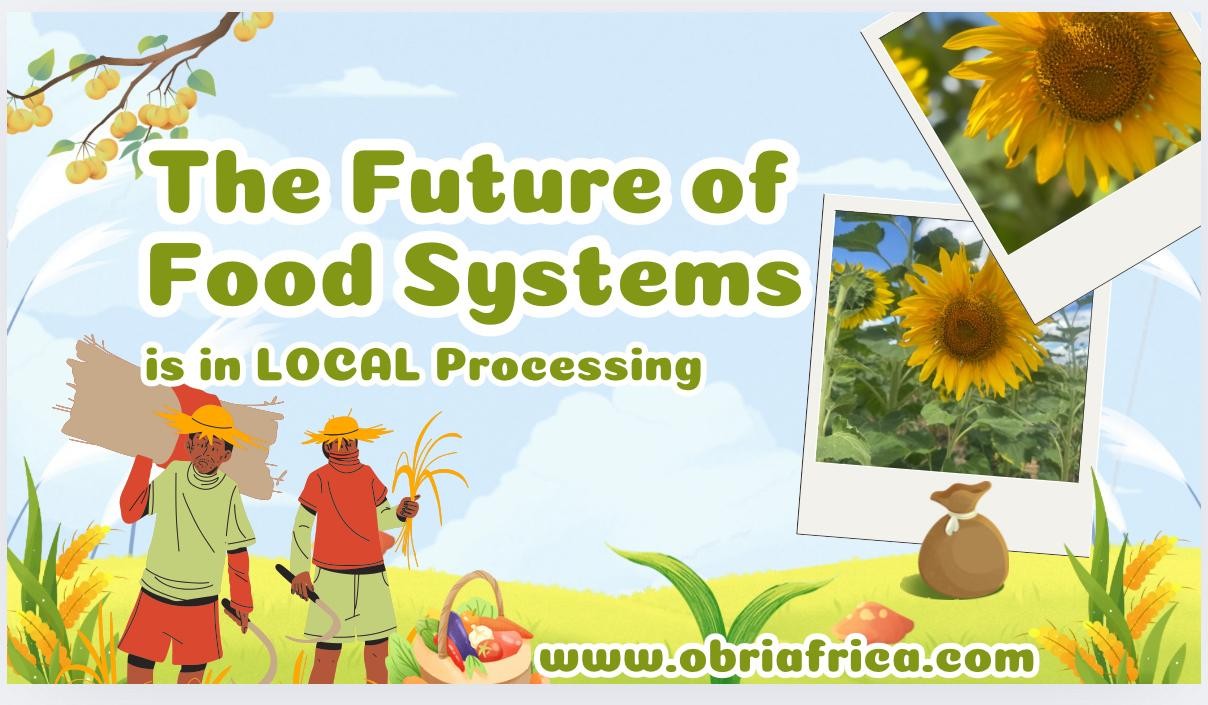The Future of Food System is LOCAL!
The global food systems face significant challenges driven by
population growth, climate change, geopolitical conflicts, crises,
and evolving consumer preferences.
Intending to address these challenges, optimizing food production,
adopting sustainable practices, and developing technological
advancements are essential while ensuring the safety and public
acceptance of innovations.
When looking at the future, the only certainty about it is that it
will be different from the past or present. In the case of food,
agriculture and processing the future will be very different. That
said, the present and future are always rooted in the past.
Why were local, community-based food systems of the past replaced
by today’s global, corporate-based food system? Why are many
global consumers seeking something different from today’s food
system for the future? The future of local foods depends on the
answers to these questions.
Today, I believe we are in the midst of another transformation. I
believe the local food movement is in fact the leading edge of a
change that ultimately will transform the global food system from
industrial/global to sustainable/local.
Organic foods were the leading edge of the movement, from the
early 1990s until the economic recession of 2008. Growth in
organics sales have since stabilized and increased, yearly. The
global organic farming area increased by 2.5 million hectares in
2023, reaching almost 99 million hectares. The sales of organic
food reached nearly 136 billion euros in 2023.s
However, as organic foods moved into mainstream food markets, many
consumers turned to local farmers to ensure the integrity of their
foods. The modern local food movement emerged in response to
growing distrust in organics.
People tend to trust “their local farmers” to not only produce
“good food” but also to be good neighbors, good community members,
and good stewards of the land.
Consumers are trying to restore trust and confidence in “their
food system” by “buying local.” For this reason and others,
farmers motivated primarily by profits or economics are unlikely
to be successful in local markets. They need to re-think and
re-strategize.
I believe this vision of a new and better food system is emerging
from today’s local food networks – alliances, collaboratives,
cooperatives, personally-connected food hubs and other innovative
relationships. Skeptics may ask: would it actually be possible for
a new local, community-based food system to replace our current
corporately-controlled industrial food system? The answer? YES. I
am convinced such a change is possible, although I am not so
idealistic as to think that the transformation will be quick or
easy
I believe the motivation for agriculture and food production
eventually must go beyond “food security” to “food sovereignty” –
which includes treating food security as a “basic human right.”
Communities need not wait for changes in policies. People in local
communities can make a commitment to ensuring that everyone in the
community has access to enough “good food” to support healthy,
active and sustainable lifestyles.
Personal relationships of trust among community networks could
create national and global food networks sustained through shared
social values and a common ethical commitment to meeting the needs
of present and future – to sustainability.





